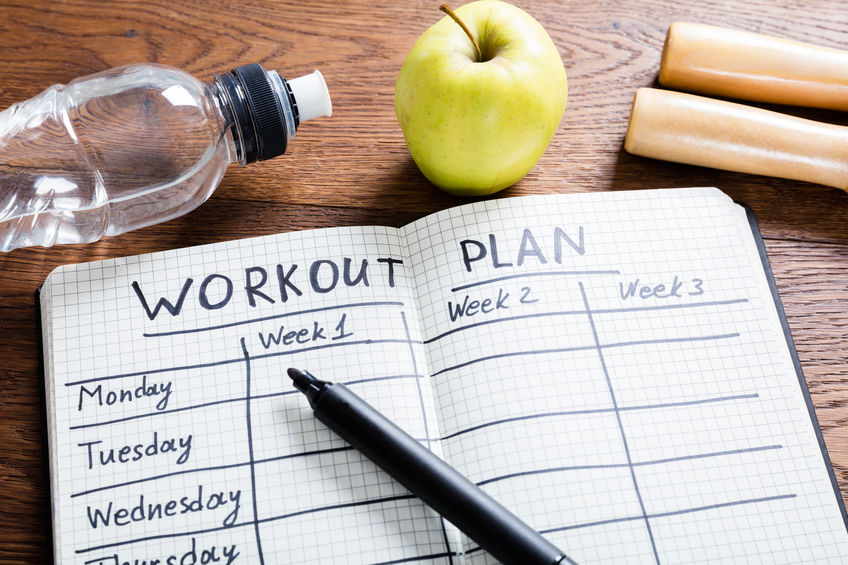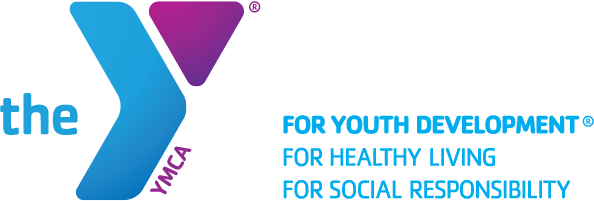Why a Spring Break Body Isn’t Everything

Preparing for spring break can be fun when you’re planning an exciting beach vacation, but messages about getting a great spring break body can cause you unnecessary stress. Many people feel pressured to go overboard when it comes to diet and exercise in the months leading up to their vacation, but you can find healthy ways to focus on fitness and stay happy!
Check out a few reminders why getting in “perfect” shape for spring break isn’t everything, and learn how you can form positive habits!
1. Obsessing over diet and exercise isn’t healthy.

With hundreds of articles about finding your “spring break body,” it’s easy to focus too much on diet and exercise. While working out and eating well is good for you, thinking about nothing else can cause body image issues and actually make you feel worse about your physical appearance. Obsessions with diet and exercise can also lead to eating disorders and an unhealthy addiction to working out. These can result in problems with every part of your body, including cardiovascular conditions, overtraining syndrome, difficulty with digestion, and more.
To avoid these issues, try focusing on how you feel more than how you look. If you feel healthy and confident, chances are you’ll look pretty good, too! And, if you think you’re becoming obsessed with diet and/or exercise and it’s affecting your daily life, try working with a wellness coach. He or she can help you regain balance and view your body, nutrition, and workouts from a healthy perspective.
2. Major weight fluctuations are dangerous.

Losing (or gaining) too much weight can be unhealthy. For example, rapid weight loss can cause gallstones, liver damage, and reduced metabolism. On the other hand, weight gain from binge eating can cause obesity, heart disease, diabetes, and mood problems.
Unhealthy weight loss can be especially risky with spring break diets. While some health programs allow for rapid loss of six to 10 pounds in the first few weeks, more drastic drops in weight over time can cause the problems mentioned above. But, fitness plans focused on slower weight loss through healthy eating and exercise can yield positive results.
Losing 1 to 2 pounds per week is considered healthy, and this rate is proven to help people keep weight off. If you’re setting personal fitness goals, these numbers are the safest options to try to achieve.
3. Personal goals > “Perfection.”

The SMART approach to goal-setting can help you set achievable fitness objectives, rather than working toward a “perfect” body with little direction. Whether you set them yourself or work with a personal trainer or wellness coach, SMART goals can help you create a healthy, doable fitness plan.
SMART goals are:
- Specific: “I want to jog for 20 minutes per day, 3 days per week.” vs “I want to exercise regularly.”
- Measurable: “I want to lose 1 pound per week until I reach 150 pounds.” vs “I want to lose weight.”
- Achievable: “I want to run a mile every day.” vs “I want to run a marathon every day.”
- Realistic: “I want to train for a race I’m running this summer.” vs “I want to train for a race I’m running in three years.”
- Timely: “I want to spend 5 hours at the gym per week by the end of the month.” vs “I want to spend time at the gym.”
Reaching the safe, unique goals you’ve set for yourself will always be more rewarding than pursuing an idea of “perfection.” Your perfect body is the one that makes you feel happy and healthy!
4. Well-being is about more than a “beach body.”

Working out can improve your health and how you feel, but with the wrong mindset, exercise could harm your well-being. So, what is well-being? A variety of elements play a role, but research suggests these four are especially important:
- Awareness: Living fully focused in the moment
- Connection: Nurturing relationships with others
- Insight: Understanding how thoughts and feelings shape our lives
- Purpose: Realizing what brings you joy and gives life meaning
While exercise can help you form connections, develop a sense of purpose, and stay focused on the tasks at hand—trying to achieve a “beach body” isn’t a healthy way to think about fitness. But, when you focus on overall well-being, you’ll be more present, improve your relationships, let positive thoughts and feelings flow, and increase the time you spend pursuing your purpose in a healthy way.
Even though it seems like tips to achieve a perfect spring break body are everywhere, they’re not always safe or positive. And, you are so much more than your physical appearance! When you feel pressured to look a certain way for vacation, remember that the best body is the healthy and happy one you have!

With two locations in Lafayette, Indiana, the Lafayette Family YMCA is a community committed to healthy living and social responsibility. For more fitness tips and to stay up to date about YMCA events, connect with us on Facebook, Twitter, LinkedIn, and Instagram, or visit our website here.



